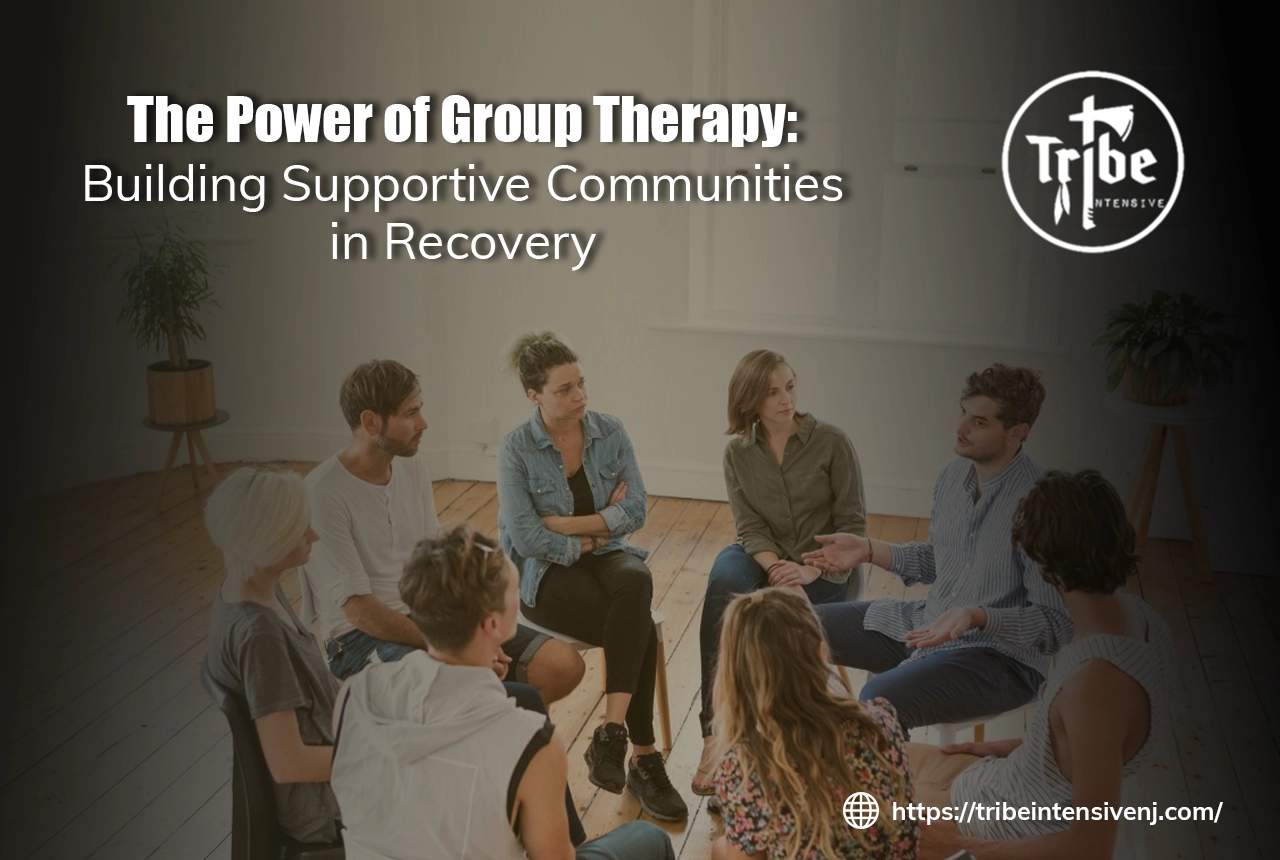When it comes to recovery from addiction or mental health challenges, one of the most powerful and transformative tools available is group therapy. In a world where individual struggles often lead to feelings of isolation, group therapy creates a space for shared experiences, collective healing, and mutual support. This article explores the profound impact of group therapy in recovery, examining how it fosters supportive communities that play a vital role in long-term success.
What is Group Therapy?
Group therapy is a therapeutic approach where individuals facing similar challenges come together to share their experiences, discuss their feelings, and support one another in a safe and structured environment. It typically involves a trained therapist or counselor who facilitates the sessions, guiding the group through discussions, exercises, and coping strategies.
Unlike individual therapy, group therapy allows individuals to not only work through personal issues but also engage in the healing process alongside others who truly understand their struggles. This communal aspect fosters connection, accountability, and a sense of belonging.
The Benefits of Group Therapy in Recovery
Group therapy offers numerous advantages that contribute to a successful recovery journey. These benefits extend beyond just addressing addiction or mental health issues; they help build the emotional, psychological, and social strength needed to maintain progress over time.
1. Shared Experiences and Validation
One of the most significant advantages of group therapy is the opportunity to connect with others who are going through similar experiences. Whether you’re recovering from substance abuse, trauma, or mental illness, hearing others share their stories can help you feel less alone.
- Validation: The validation that comes from knowing others have walked a similar path is deeply comforting and empowering.
- Empathy: Group members often empathize in ways that friends and family members may not fully understand, offering perspectives grounded in lived experience.
2. Accountability and Motivation
In any recovery process, accountability plays a crucial role in ensuring progress. Group therapy provides an environment where individuals can check in with one another, share milestones, and discuss setbacks. This mutual accountability encourages participants to stay committed to their recovery goals.
- Group Support: Knowing that others are invested in your success can increase motivation and reduce the temptation to give up.
- Peer Encouragement: Positive reinforcement from group members boosts self-esteem and confidence.
3. Building Communication Skills
A key component of recovery is developing healthier communication habits. Group therapy sessions provide the ideal setting for practicing and refining these skills, whether it’s learning to express feelings more openly or actively listening to others.
- Conflict Resolution: Participants can practice handling conflicts or disagreements in a constructive way, which translates to better interactions in other areas of life.
- Emotional Expression: Many individuals in recovery struggle to express their emotions. Group therapy provides a safe space to share and process feelings.
4. Strengthening Social Connections
Isolation is often a major barrier in recovery, and group therapy directly addresses this issue by creating an environment where individuals can form meaningful connections with others. These new friendships not only provide emotional support during difficult times but can also lead to long-term social networks that promote sobriety and mental wellness.
- Reduced Loneliness: Building connections helps combat loneliness, which is often a trigger for relapse or worsening mental health.
- Social Bonds: Positive, supportive relationships within the group can replace toxic connections that may have been a part of the individual’s past.
How Group Therapy Contributes to Long-Term Recovery
Group therapy is not just beneficial in the short term but has lasting effects that contribute to the overall success of recovery efforts. Here’s how group therapy strengthens long-term recovery:
1. Ongoing Support Network
In the recovery process, relapse prevention is crucial. Group therapy provides an ongoing support network that individuals can rely on even after treatment programs have ended. Many treatment centers offer post-rehabilitation groups or alumni groups, which can be valuable in maintaining long-term sobriety and mental wellness.
- Continuous Encouragement: Long-term groups allow participants to continue sharing experiences and offering support.
- Crisis Management: If relapse or emotional setbacks occur, the group can offer immediate support and guidance.
2. Developing Coping Strategies
One of the key goals of group therapy is teaching practical coping strategies that can be implemented in real-world situations. From learning how to handle triggers to building healthier habits, group therapy equips individuals with tools for managing their recovery outside the therapeutic setting.
- Relapse Prevention: Group discussions often focus on identifying warning signs and developing strategies to avoid relapse.
- Stress Management: Group therapy teaches stress-reduction techniques, helping individuals manage anxiety, depression, and other mental health challenges.
Types of Group Therapy
Group therapy comes in various formats, each catering to different needs and preferences. Some common types of group therapy include:
- Cognitive Behavioral Therapy Groups: These groups focus on identifying and challenging negative thought patterns and behaviors that contribute to addiction or mental health issues.
- 12-Step Groups: These groups follow a structured recovery program based on the 12-step model, often associated with programs like Alcoholics Anonymous and Narcotics Anonymous.
- Support Groups: These groups provide a space for individuals to share experiences and offer mutual support without a formal therapeutic structure.
Finding the Right Group Therapy Program
Choosing the right group therapy program is a critical part of the recovery process. It’s essential to find a group that aligns with your specific needs and recovery goals. Consider factors like:
- Specialization: Look for programs that specialize in your area of need, such as addiction recovery, trauma healing, or mental health support.
- Facilitator Expertise: Ensure that the group is led by a qualified and experienced therapist who understands the dynamics of group therapy.
- Comfort and Fit: It’s important to feel comfortable within the group. If a particular group doesn’t feel right, don’t hesitate to seek out another one.
Incorporating Group Therapy into Your Recovery Plan
Group therapy is often a central component of a well-rounded recovery plan, but it works best when combined with other therapeutic strategies. Consider integrating the following elements into your plan:
- Individual Therapy: Complement group therapy with one-on-one counseling to focus on personal issues.
- Holistic Approaches: Incorporate meditation, yoga, or other wellness practices to support mental and physical health.
- Family Therapy: Family involvement can help rebuild relationships and provide additional support.
Embracing the Power of Group Therapy
The power of group therapy in recovery cannot be overstated. By providing a sense of community, accountability, and shared learning, group therapy empowers individuals to face their challenges with strength, resilience, and hope. Whether recovering from addiction, mental illness, or trauma, group therapy offers a vital lifeline to those on the path to healing.
If you’re considering group therapy as part of your recovery journey, take the time to explore different programs, connect with professionals, and find a group that feels like the right fit for you. Start today by finding a local or online support group that aligns with your goals and start building the supportive community you deserve.



